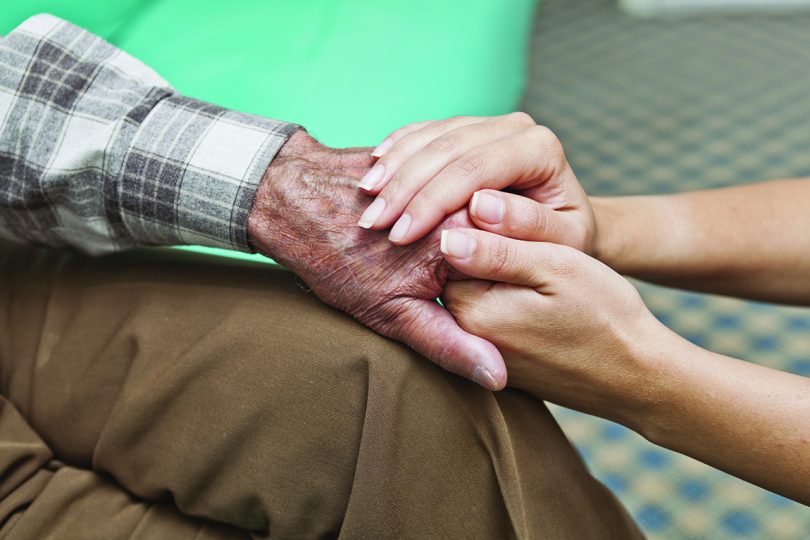Like many Virginians, Mary Ross found herself caregiving for her father after her mother passed away. Mary’s father had been maintaining his Parkinson’s disease for nearly 20 years with the help of his wife and the assistance of doctors in his small town in South Carolina, but dementia had begun to addle his mind, and Mary realized he could not stay alone.
A Challenge Ahead
With three boys in school, a husband who traveled for work at times and a full-time job of her own, Mary knew that bringing her father to live with them in Virginia would be a challenge. For one thing, their home was a two-story, and mobility was a problem for her father. Like many seniors when they face a move from their own home, Mary’s father was concerned about his independence. In what she saw as a stand for his autonomy, Mary says her father had a difficult time accepting help from her husband. Top these limitations with the crippling grief of losing a life-long partner, and Mary knew there would be difficult hurdles for everyone involved.
Mary remembers the family pulling together to make the situation work for her father for the couple of years he lived in their home:
“We tried to make everything positive for daddy. We told him we were happy to have his help with the kids after school, even though we knew he couldn’t do a whole lot. We tried to make him feel included.”
Mary’s son, Mike Ross, now an adult, says he remembers his mother and father taking time off of work to attend doctor’s visits and monitor his grandfather at home. Despite the compromises and adjustments that were made, Mike sees this time in his youth as positive: “It made me more compassionate for people who can’t take care of themselves. When you’re 16 years old and you’re helping your grandfather bathe himself, telling him not to be ashamed because you are his family and he needs you, it tends to leave an impression. Together, we figured it out. I think my brothers and I developed an expectation of caretaking when we became adults from that experience. We know we will take care of our parents when they need it.”
A Common Story
According to statistics compiled in 2014 by the Family Caregiver Alliance, a community based nonprofit dedicated to caregivers and their needs, the Ross’ story is far from unusual. In Virginia, there 180,000 grandparents living with grandchildren, and about 122,000 people in Virginia are 85 years or older. With nearly a quarter of the households in the state housing people 65 and older, the intricacies and balancing act of caring for a family member is a common reality for many.
Jaynee Sasso, founder of Care Keepers, Inc. in Newport News, Virginia, says a lot of caregivers are part of the Sandwich Generation. She explains, “They are middle- aged and are married, have children under 18, and they’re working full time.”
Care for Caregivers
Not unlike their loved ones in need, these caregivers often face physical and psychological impacts from the energy they expend. Sasso says, “The health care industry is primarily focused on the patient, which they should be, but they forget that the caregiver has to be taken care of because they are basically picking up where the professional caregivers leave off. Friends of caregivers can assist them in a very meaningful way by being someone who will get down and get their hands dirty, assisting beyond words of encouragement or praise.”
Sasso explains that caregivers neglect themselves to such extents that some even die before the loved ones they’re taking care of. She notes, “It’s not always easy to convince someone they need help. You’ll start to notice that they’re overwhelmed or stressed. You may notice they’ve stopped eating, they’re not exercising, and maybe they’re isolating themselves. You’ll notice when people don’t call anymore or they’re not as social. As a friend, you can lend a helping hand.”







